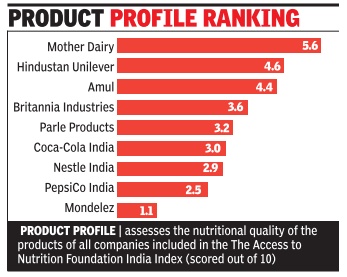Food safety and standards: India
This is a collection of articles archived for the excellence of their content. |
Silver leaf
Banned, if processed using animals
The Times of India, Aug 03 2016
Sushmi Dey
FSSAI bans silver leaf of animal origin in food items
The Food Safety and Standards Authority of India (FSSAI) has banned the use of any material of animal origin in silver leaf (chandi ka warq), commonly used in confectionaries and sweets like barfi for decoration and also in pan and packaged supari.
According to sources in the ministry , the move comes in the wake of concerns over use of intestines of cows and buffaloes in making these thin strips of silver. “The silver leaf is prepared by placing small thin strips of silver between the intestines of cows and buffaloes and continuously hammering these bundles for up to eight hour a day till desired thickness of silver leaf is achieved,“ an official said. He said the process was found to be offensive and unhygienic posing potential risk to consumers. Moreover, such silver sheets do not carry any green dot or maroon dot. Hence, consumers fail to differentiate between a vegetarian and non-vegetarian product.
There were also concerns that the silver leaf contained heavy metal traces such as nickel, lead, chromium and cadmium which are harmful for health.
=Packaged foods =
Food and beverage manufacturers fail on nutrition
Nutrition: Indian cos rank low, Dec 15, 2016: The Times of India

Far Short Of Providing Nutritional Qualities To Fight Malnutrition
The largest food and beverage manufacturers in the country need to pull up their socks when it comes to offering nutritious products to consumers. Research by the Netherlands-based The Access to Nutrition Foundation (ATNF) has found that food and beverage companies in India are falling far short of what they need to do to help fight malnutrition.
For instance, despite having the strongest nutrition and under nutrition-related commitments and policies, Nestle India, maker of Maggi noodles, scored the second lowest for nutrition qualities of its products among all the companies assessed under the India Access to Nutrition Spotlight Index. On the other hand, Mother Dairy scored the highest.
“India faces the serious and escalating double burden of malnutrition, with a large undernourished population, as well as growing numbers of overweight and obese people who are developing chronic diseases,“ said Inge Kauer, executive director of ATNF .“Food and Beverage (F&B) manufacturers in India have the potential, and the responsibility, to be part of the solution to this double burden of malnutrition.“
Factor this: India is home to the largest number of stunted children in the world -48 million under the age of 5 -while at the same time, childhood obesity is reaching alarming proportions. The obesity prevalence rate reached 22% in children and adolescents aged between 5-19 years over the last five years, the report said.
Under the index, companies have been scored out of a maximum of ten in two ways corporate profile and product profile. While the former assesses companies' nutrition and undernutrition-related commitments and policies, practices and disclosure in seven areas of their business, the latter assesses the nutritional quality of the products of all companies included in the India Index.
The leading companies on the corporate profile -Nestle India and Hindustan Unilever -with scores of 7.1 and 6.7 respectively -have done more than the other seven companies assessed to integrate nutrition into their business models.